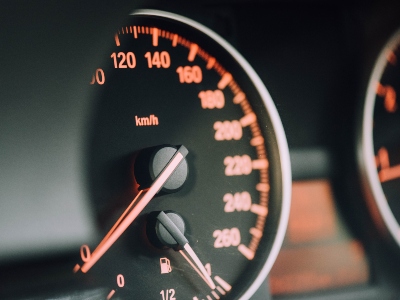How to Buy Your First Car: A Dummy’s Guide
Car
3
min read
14 Nov 2019

‘Well for one, this wheel torque is completely off and there’s a definite problem with the alternator. You might need a road force balancer, yano. And just look at that parasitic draw. Of course you’ll need to compress the piston in the rear calipers. Did you notice anything major about it?’
‘First off, I noticed the blackness. The colour that is. And it has wheels too, all four of them.’
There are people out there who can appreciate an excellent horse break power or slick adaptive cruise control and then they are… the rest of us. ‘Oh, that colour is nice. The inside smells fresh and wait, the best bit - there’s a coffee cup holder – coffee fanatic, me. SOLD.’
How do you choose a car that lasts and doesn’t cost you more in repairs than what you bought for it? If you’re a complete newbie to the world of motors and don’t know where to start, we’ve compiled the eight main steps to buying your first car.
And, of course - if you need any help with the budgeting and finance, we’d be more than happy to chat about how much a car loan might cost and if it makes sense for you. Pop us a loan enquiry here.
1. Decide overall budget
It may seem obvious, but of course the very first step is setting a defined budget and sticking to it. (Yes, we know the cruise control and rear parking aid is cute, but ask yourself if you need to spend the extra 6k?). Don’t make the mistake of looking for cars then seeing if you can fit your budget into your dream model. Make a suitable model fit into your budget.
One thing to also remember is the car expense each month – make sure your budget includes money for petrol, tax, NCT and the general upkeep of the car too. See how much money you have saved, how much you make each month – and of course a car loan can always help you along the way also.
2. Make a list of what you will use your first car for
This list will help you determine the car’s make and model.
-
Will you use it for college/work/just social reasons?
-
Will you be covering a lot of miles in it?
-
Will you be driving in country or city mostly?
-
Will you be parking in tricky spaces with it?
-
Do you need extra space for anything?
-
Do you want to resell it in a couple of years or hand it down?
3. Decide on the car brand
This is the top level decision based on the needs you just defined. Are you using it for distance? City parking? Space? Pick a brand that will fit your needs - If you’re not going to be using the car that much, just nipping around the city/town every now and then, a small car with average mileage will do. If you’re going to be using it for long distances over questionable roads, a more sturdy brand (Volvo perhaps) with low mileage could work. Some car brands are known for their reliability, safety and good resale value.
Ascertaining what brand work best in different situations comes from looking online at what each car brand promises – most of your research will be online here.
4. Decide on the car model
The model then is the next step - once you’ve chosen your car brand, this choice will also be based on your list above. Here, you will be looking out for specific features of the car – braking, parking, space etc. You can check which models will suit your needs by researching their websites, and the brand's promise online. This is top level research, so do ask family and friends how they would describe their car to build up a picture of the different brand promises of each one.
5. Decide on the car mileage
If you are new to buying a car, this one is the most interesting. There are mileage milestones for every car you should watch out for. At around 3 years old, or 30k-40k miles, this is the first major milestone. If you are getting a used car, you should see how much maintenance and recent work that has been done on the car, and if there hasn’t been any you should save on this cost on the price.
There are mileage milestones for every car you should watch out for. At around 3 years old, or 30k-40k miles, this is the first major milestone. If you are getting a used car, you should see how much maintenance and recent work that has been done on the car, and if there hasn’t been any you should save on this cost on the price.
The second major milestone is 60-70k miles and is the time you may need to replace parts on a car, and the third is 100,000 miles. Check how many miles the car has done, and ascertain how much the car is at each stage. What mileage level you decide on will depend on how far you will drive the car on a weekly basis. You can check a car’s history on sites such as cartell.ie or motorcheck.ie.
6. Research used car sites
You know what brand of car you want, possibly the model and the mileage cut off. You can search for these criteria on car sites such as Done Deal, Carzone.ie, Cars Ireland – these are well known sites for second hand cars.
7. Determine your car expenses
Based on the car you choose, you can now make a detailed assumption of how much you will spend on  monthly expenses, and then decide if this fits in with your budget. Look at things like:
monthly expenses, and then decide if this fits in with your budget. Look at things like:
Again – once you calculate the overall cost, financial help from your friendly neighbourhood credit union is an option. Drop us a line, if you have any queries.
8. Shop for car insurance
When you pick up the car, you will need insurance to drive it home. Always get quotes from various different insurance brokers or companies, and challenge them on different rates. Why not check out credit union car insurance options from Coveru and AIG.
Ok - off you go young apprentice, go fly and get that car of your dreams... or... er, the very reliable and sturdy car of your rationale plans. And once you've done your budgeting and you think you might need a little bit of help - you know where to go. (Hint: hit the button below!).
Submit an Online Loan Enquiry